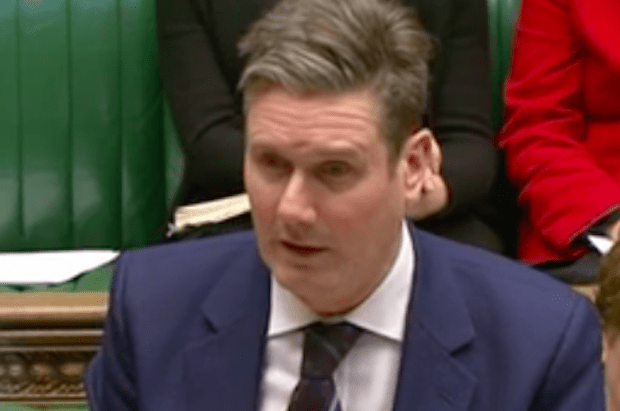With Theresa May opting to give her speech in the grand settings of Lancaster House rather than the Commons, it fell on David Davis to face anxious MPs in the House. With many MPs feeling sidelined by the Prime Minister, the Brexit secretary summarised May’s speech — re-asserting that the final deal will be put to a vote in the Commons and adding that Britain will seek an interim agreement in order to avoid the economy falling off a cliff edge.
Keir Starmer, the shadow Brexit secretary, responded by announcing his disappointment that May had avoided answering questions in the Commons. However, while Jeremy Corbyn took to the airwaves to accuse May of wanting to have her cake and eat it, Starmer did find some praise for the Prime Minister’s Brexit plan. He suggested that May had listened — and come round — to Labour’s demands by effectively ‘ruling out a hard Brexit at this stage’:
‘For many months, we in Labour have been demanding fullest possible access to the single market, emphasising the risks of leaving the customs union, arguing for a collaborative relationship with our EU partners, emphasising the need for transitional arrangements and the entrenchment of workers’ rights. Today the Prime Minister has rightly accepted these in her plan and I acknowledge that.’
Starmer says Labour will judge the final deal on whether there is tariff-free access to the single market, access to the single market unencumbered by impediment, alignment of regular trade bodies and a deal that works for goods and services.
However, none of this should particularly worry May. All the things Starmer has asked for, are things the Prime Minister has said she wants to achieve. If anything the most striking thing about Starmer’s statement is that rather than decrying May’s speech, Labour are accommodating themselves to what she has set out. The problem that Starmer and his party face is what they will do if no decent deal transpires. May has said no deal is better than a bad deal, but are Labour willing to walk away?
Listen to Isabel Hardman, Fraser Nelson and James Forsyth reviewing Theresa May’s speech:







Comments